THE WASHINGTON POST: After 3 hurricanes in 2 years, Fort Myers Beach residents wonder if it’s time to let go
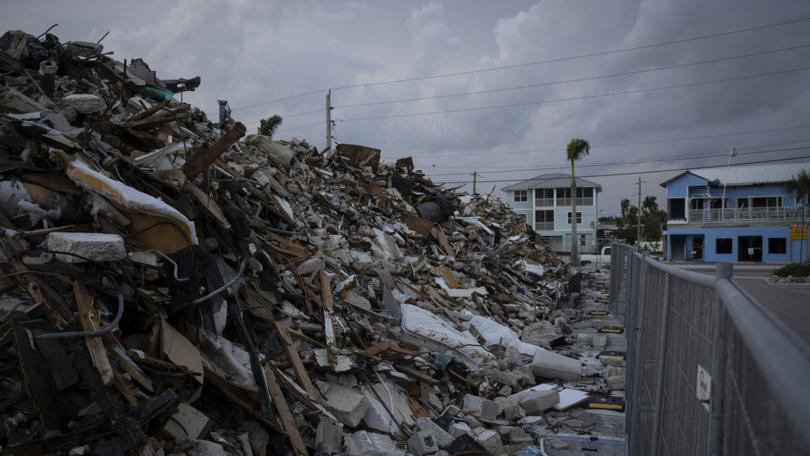
It’s a strange feeling, said Melody King, to be grateful for a hurricane that hit with just 100 mile-per-hour winds.
Waking up the day after Milton pummeled Florida’s west coast, King said she was so anxious she felt sick. At first light, she drove her white Tahoe to the Fort Myers Beach bridge, bracing for what lay on the other side. Descending into the deserted town, she drove across thick sand coating the main street, past a half-built house that had collapsed, streaming it live on Facebook. Then she turned left and said a prayer: Her house and her neighbours were still there.
If you “thank God that it was only a Cat-3,” she wondered later that afternoon, “maybe it’s time to reevaluate what we’re doing here.”
Sign up to The Nightly's newsletters.
Get the first look at the digital newspaper, curated daily stories and breaking headlines delivered to your inbox.
By continuing you agree to our Terms and Privacy Policy.Two Septembers ago, on the day she turned 39, King lost every single thing she owned. Hurricane Ian had submerged her mobile home on Emily Lane, destroying it “inside out” with a 12-foot wall of water that made an “aquarium inside the sliding glass doors.” She rode out the storm on the third floor of a friend’s condominium, 21 feet up. They watched Ian’s storm surge, which reached about 15 feet in some places, rise below them.
After Ian, she, her 13-year-old son, and her pit bull Chico were displaced for eight months, living in a friend of a friend’s house more than an hour away. She was also jobless for nine months and carless for 15. A boat captain who can’t sit still, King volunteered with post-storm search and rescue, helping to look for the missing for 103 days. In the first week, crews pulled people submerged in half-capsized boats and hatches, still alive. Then it was only the dead. Sometimes, the ones the cadaver dogs would find were too decayed to identify.
Because of that, she says, “my brain has been rearranged.”
The same goes for a lot of people in this little corner of southwest Florida. And in the last two weeks, they’ve had to grit through Hurricane Helene, which nearly hit on Ian’s two-year anniversary. Then, Milton, a force of a storm whose terrifying predictions triggered massive evacuations and disaster prep responses. But they still didn’t hit this region like Ian did.
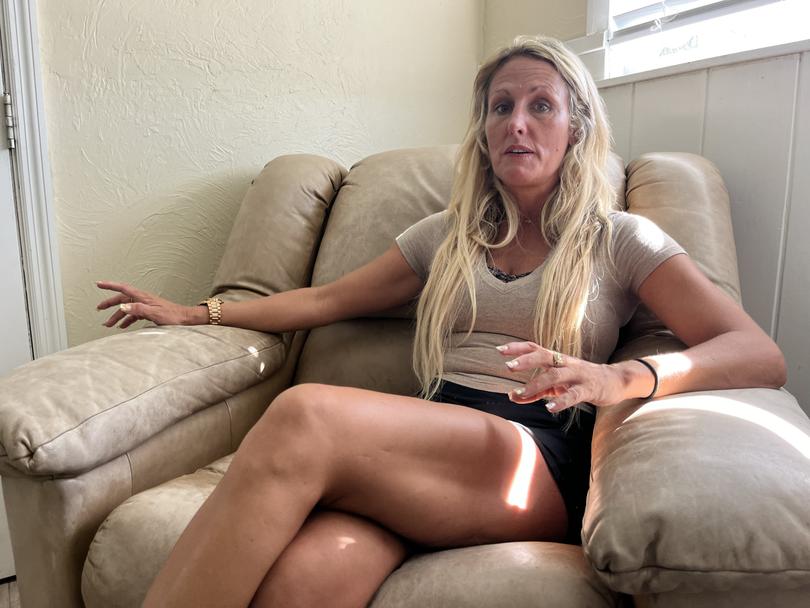
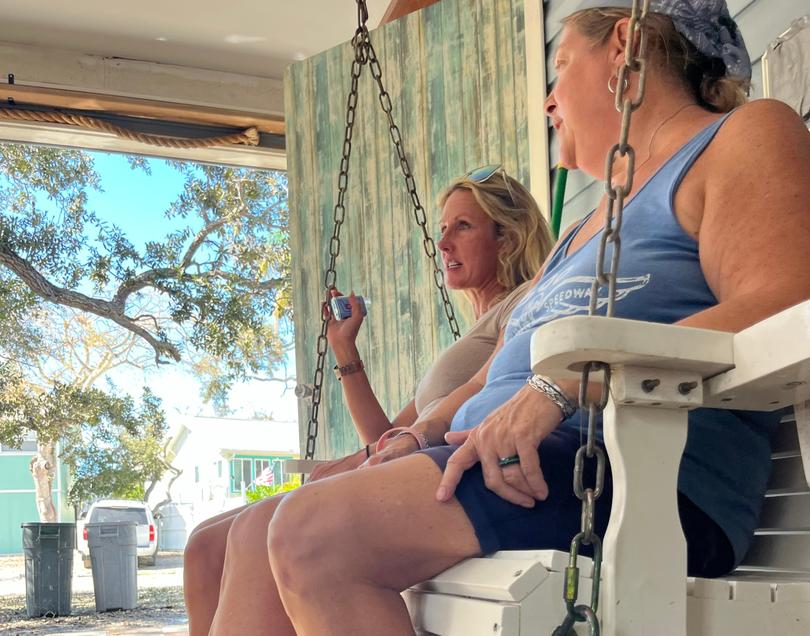
Digging out from a few feet of floodwater and layers of muck is not so bad, residents said, when you’ve seen authorities loading up body bags. And for months after that, depending on the wind, a few residents said they smelled the ones that weren’t - in the mangroves and under the shrimp boat dock. They’ll shrug off losing some roof shingles if it means their house is still there. They’ll take losing their business or job over losing their friends, especially since they still can’t talk about them without crying.
“Ian is the new bar,” as Fort Myers Beach resident Patrick Romcoe put it.
But that extraordinary standard has also created a complicated reality for King and other residents: getting knocked down and moving forward, but never fully healing.
“We’re glad it wasn’t worse, but it’s still bad,” King said.
Ian left behind a kind of trauma that never leaves you, said King, who has made herself a vocal advocate for the future of Fort Myers Beach. That Category-4 storm killed about 150 people, producing a storm surge that erased much of Fort Myers Beach and a historic level of loss and devastation for much of Lee County and beyond. Coming back from that has made the community more resilient and more able to stomach and dig out of devastation, but multiple residents said it’s also numbed them.
David Lowery, who’s become like an honorary father to King, said he’s “gotten used to the piles of debris” and the holes where homes used to be; to seeing people’s lives turned upside down.
At the same time, though, residents can’t escape the flashbacks. Whenever hurricane-force winds rattle Kim Goulet, who lived in a storage unit for some months after Ian before finding a trailer, she panics, her “ears pop and blood pressure goes up,” she said, because she’s “never sure if things will hold up.”
And then there’s the other cost: money, Lowery pointed out. Cleaning, replacing, remediating, over and over, on top of spiking insurance rates, is making the beach life they hold dear that much harder to hold onto. Lowery makes $15.50 an hour as a dock hand, a job the 67-year-old picked up to supplement his retirement after Ian wrecked his home and sunk him $167,000 in debt.
This kind of triple whammy has him and others feeling worn down by the constant weight of wondering “How much more of these storms can we take?” while knowing “there will be more of them.”
And Fort Myers Beach is still frozen in some big ways. Barely any homes or colourful businesses have come back, faced with stringent building permits, codes, regulations and one tough question: What should the town be now? Besides, it feels like every time they take meaningful steps forward, such as erecting new street signs around their Times Square, pouring millions of “sand dollars” into refurbishing the white sand, or getting Snug Harbor back up and running, “mother nature laughs in our ... faces,” King said.
“Every time we get five feet forward somebody named XYZ hurricane is there to knock us back 100,” she said. Maybe it’s a sign, she thought, that life is pushing her “in a direction I don’t want to go.”
A bullet, but not a bomb
Milton caused widespread, significant damage across a big sweep of an already weary state, the storm and its aftermath killing at least 17 people, six dying in a stunning tornado outbreak that hit and shocked communities who didn’t even consider themselves at risk.
Its 100 mile-per hour winds obliterated mobile homes and old Florida estates; knocked over concrete gas station canopies and heavy metal cranes, as well as power for millions. Evacuated residents on several keys and islands came home to crumpled and ripped open homes, air conditioners and refrigerators lying on sand-filled streets.
Days before that, Helene killed at least 27 people in the state before moving up the coast, also producing a shocking, ruinous storm surge.
Still, King and many others feel like they took a bullet but dodged a bomb - because it wasn’t as bad as Ian.
Aren’t you tired of this?
By 4:30 p.m. Thursday, King was having trouble thinking clearly. She’d been living mostly off adrenaline for the last 48 hours and was ready for a real meal.
“Hurricane brain is real,” she explained, ordering a spicy margarita and a big bowl of Tenderloin Tips Stroganoff from O’Leary’s Bar and Grill. Nearly every table and bar stool in the institutional Fort Myers pub was full, as locals laughed over pints, but also commiserated because they still just went through a beast of a storm.
A few miles away, inside the run-down Chevron on San Carlos Boulevard, which became a gathering hub in the horrific weeks after Ian, Khan Salahuddin could use a drink, too. He was finally getting business back on its feet when Helene hit. And now the manager was hosing down his mud-coated floors, his co-worker following behind, trying to corral the dirty water with one soaked mop. Each time, it takes them three days to wash and clean, wash and clean, wash and clean, Salahuddin said, getting on their knees to wipe down the corners to try to thwart the mould they know will grow anyway.
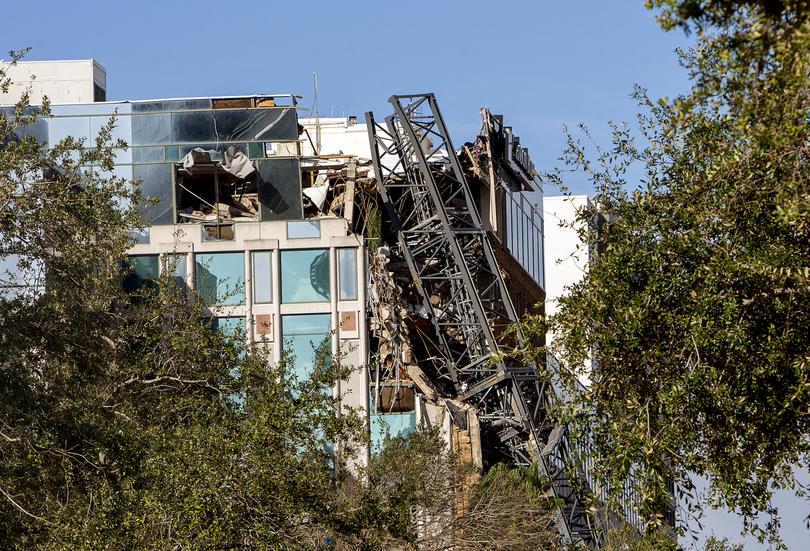
In the middle of talking about the work, King, who acts like the mayor around here, warned him he better hurry up. There’s another potential storm brewing out there, she worried; Maybe it will be “Nadine,” she said.
“Again?” Khan asked, his face falling.
“Again, maybe” she replied, adding, “Nadine is my mother’s name so you know she’ll be terrible.”
The upside, though, of getting hit back-to-back-to-back is that people, and those in power, are acting sooner when it comes to preparing for and trying to bounce back from the punches.
After riding out Helene in her small, second-story house, King heard how cataclysmic Milton was predicted to be and sent her son to his dad’s in Chicago. She posted up at a ranch on high ground 20 miles inland, spending two days in a small space with friends and strangers, two dogs, and a flock of chickens. Nearly everyone on Fort Myers Beach, even the born-and-raised and die-before-we-leave kinds of Floridians, evacuated this time, King and others said.
Coming back to 75 per cent of his Cigar Shop floating in the water after Ian, this time, Harry Murphy cleared out all the boxes from the shelves. A good call, since the store, one of the only ones open in Fort Myers Beach’s skeleton of a downtown, flooded, again.
Still, “smarter is debatable,” he said, “because we keep coming back. We lead with our hearts and not our heads on that one.”
Asked why, Murphy said simply, they have to: “We clean up and get going again, that’s the imperative, to keep going.”
Their motto and mission is “#FMBStrong,” especially after what residents went through, how they survived Ian by floating in a freezer and clinging to ceilings. They are committed to their town’s surviving too. But some people, like King, are starting to wonder how much longer they can or want to be “strong.”
At 60, Dana Raco has just about had it. Hands-on her hips, she surveyed the wreckage Milton wrought on the bright, crystal and art-filled home she shares with her wife, Lisa Johnson, a Fort Myers Beach icon who has lived here for 46 years. They were some of the few who stayed for Milton. Sitting upstairs in the pitch black, wind banging the windows, Raco turned to her partner and asked: “Aren’t you ready to move?” She ticked off hurricane-free options they could go to, like Dayton, Ohio. “Aren’t you tired of this?” Raco keeps asking.
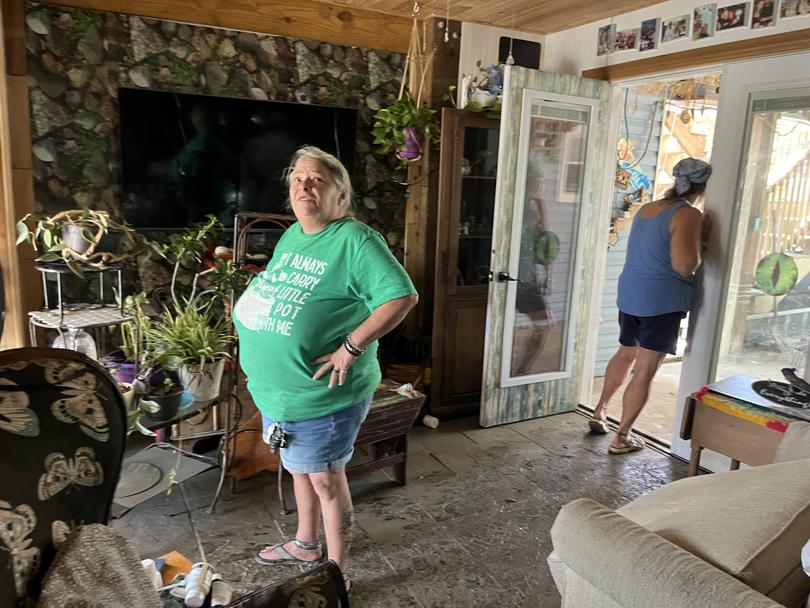
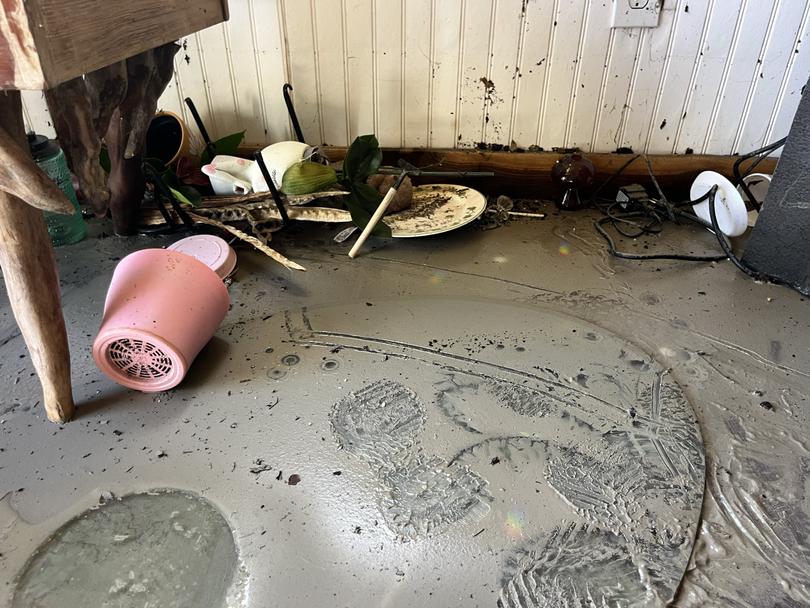
Johnson, smoking a cigarillo and wearing a green shirt with a leprechaun that reads “I always carry a little pot with me,” shrugged: “It is what it is,” she said.
No matter how many people call her stupid, and foolish, her soul is here. Plus she hates the cold, as do her nine tortoises - now 10. She just rescued “a teeny baby one during Helene”; found it clinging to a fence in the floodwaters and “popped it” in her pocket.
One more day
If the emotional toll from these kinds of hurricane seasons don’t drive some residents away, the financial one might. Across the street, Jeff Morris has spent $120,000 of his own money to fix what Ian ruined, and his home is still not finished. Now Helene and Milton have added to the running tab. Another family can no longer afford insurance given they just had a new baby, and it was one or the other.
Walking up to King’s truck, her neighbor Rick Redenius, whose family has lived on the island for generations, folded his arms on her open window.
“I tried to ask them when I came through the check point if they’d just shoot me now,” Redenius chuckled, talking about the police manning the island’s entrance after the storm. “They wouldn’t, I begged ‘em.”
That’s the thing, even with all the signs, even with the multiplying hardships, many residents aren’t ready to give up. Lowery said he’s “willing to keep risking it, for now”; Morris “believes that it will get better,” somehow.
And it has, in some ways, King said, pointing to downtown’s newly refurbished stores (though now filled with hurricane debris).
Then her phone rang. Hang on, she paused. It was her boss. About 30 seconds after her chipper update about how her home came out unscathed this time, her eyes widened and her face whitened. Her long, bejeweled acrylic fingernails tapped the screen to turn on its speaker. He was talking about Milton’s serious damage to the hotel dock, where she works, the months it would take to get the permits, how they’d probably no longer run the 100-foot skipper-liner dinner ship she captained, a dream job she’d recently secured with a salary that finally matched the cost of living here.
“I’m going to have to lay you off,” he said, matter-of-fact.
And just like that, she was on the ground sitting next to a tilted pontoon boat that Milton had thrust up onto the grass, head in her hands. “He couldn’t have waited a day?” she cried, in shock. And that was all she could say: “He couldn’t wait a day? He couldn’t have given me one day?”
© 2024 , The Washington Post
